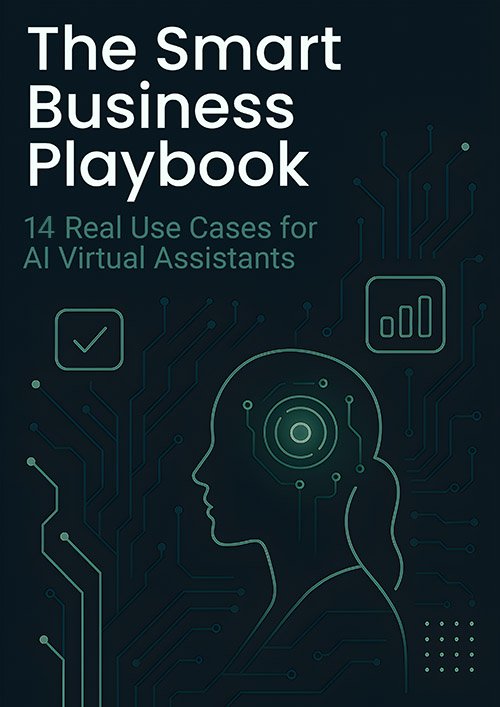As an executive assistant, you manage senior managers’ schedules and priorities, ensuring organizational efficiency. You’ll coordinate travel, formulate strategic meeting plans, and facilitate seamless communication. Proficiency with cloud platforms and project management software is vital. Confidence in nurturing professional relationships and safeguarding confidentiality is essential. You’ll thrive in flexible work settings. Mastery of digital tools not only boosts performance but can also lead to financial benefits. There’s much more to uncover about this significant role.
Role Importance Explained

Executive assistants play a crucial role in driving organizational success. By managing senior managers’ schedules and priorities, you harness strategic influence and guarantee organizational efficiency. Your capability to streamline communication allows seamless information flow among executives, teams, and stakeholders. Acting as a strategic partner, you enable senior leaders to concentrate on high-impact decision-making, improving overall productivity. Executive assistants operate behind the scenes, enhancing organizational efficiency with their indispensable contributions to the company’s growth. Your adept multitasking guarantees administrative duties, travel arrangements, and project coordination are managed effectively. Proactively seeking improvements, you offer invaluable insights that can influence company strategies. Additionally, your collaboration skills engage teams, bolstering project management and facilitating growth. With professionalism and discretion, you manage confidential information, fostering trust within the organization and with external partners. Your adaptability guarantees efficient handling of fluctuating circumstances.
Core Tasks Overview
Understanding the integral role you play enhances appreciation for the core tasks you perform daily. As an executive assistant, your focus on task prioritization strategies and effective communication techniques drives the office’s success.
Essential duties include:
- Managing executive schedules and calendars to guarantee time is allocated efficiently.
- Handling and coordinating travel arrangements, streamlining complex itineraries.
- Planning and scheduling meetings seamlessly, applying strategic prioritization.
- Facilitating communication by drafting concise emails and serving as a liaison.
- Providing high-level administrative support, guaranteeing executives stay informed.
Each task demands attention to detail, balancing multiple priorities simultaneously.
Your adeptness in implementing communication strategies fosters smooth interactions with executives and stakeholders. Emphasizing organizational excellence, you maintain confidentiality and handle sensitive data deftly. Executive assistants provide high-level administrative support and are integral to maintaining company operations and productivity.
Proficient in Project Management

Possessing proficiency in project management greatly enhances your role as an executive assistant, as it enables you to drive organizational success through efficient coordination and execution of projects. Executive assistants can manage projects ranging from inbox cleanup to launching new businesses, highlighting their ability to handle a wide range of responsibilities. By mastering project management methodologies, you can align tasks with executive objectives and guarantee timely completion through strategic oversight. Effective communication strategies are vital for liaising between executives and project teams, making sure everyone is aligned and informed.
Consider focusing on:
- Project Planning: Use strategic thinking to initiate and align projects with goals.
- Task Coordination: Effectively manage tasks and monitor progress.
- Stakeholder Management: Maintain seamless communication among all parties.
- Reporting: Provide clear, concise updates on project status.
- Timeline Management: Keep projects on track by addressing potential delays promptly.
With these skills, you enhance both operational efficiency and executive decision-making.
Flexible Office Setting Standards
When implementing flexible office setting standards, you’ll find they play an essential role in fostering adaptability and productivity across work environments. A flexible workplace environment is designed to support various workstyles, allowing easy movement between activities and adapting to new circumstances. Embrace flexible layouts to accommodate various workstyles, providing activity-based spaces like team-sharing rooms and focus areas. This enhances functionality and user satisfaction, empowering you to adapt to new circumstances and support organizational objectives effectively. Prioritize sound management by integrating materials such as carpeting and sound-dampening solutions to minimize distractions. This careful balance between collaborative and quiet zones guarantees that employees can concentrate or collaborate as necessary. By considering these factors, you’ll create a workspace that responds to how, when, and where work occurs, ultimately supporting employee efficiency and satisfaction. A well-designed flexible office encourages a thriving, dynamic work atmosphere.
Competitive Compensation Package

A competitive compensation package is key to attracting and retaining high-quality executive assistants. Understanding compensation trends and engaging in effective salary negotiation are vital steps. Executive assistants’ salaries vary based on experience, location, and industry. In major metropolitan areas, experienced assistants can earn salaries exceeding $104,000 with bonuses and benefits. Considering that remote executive assistants earn 15-20% more than their in-office counterparts, location can influence potential earnings significantly.
| Factor | Impact on Compensation |
|---|---|
| Experience Level | Increases salary potential |
| Location | Higher in major cities |
| Industry | Varies by sector |
| Role Complexity | Specialized roles pay more |
| Performance Bonuses | Boost total compensation |
Stay informed about compensation trends. Advanced certifications like CAP can enhance salary negotiation opportunities. Invest in professional development to support career advancement, ensuring a competitive edge in the ever-evolving business landscape.
Increase in Remote Opportunities
As an executive assistant, you’ll find that the surge in remote opportunities brings substantial benefits, including better work-life balance and enhanced compensation. To succeed in this evolving landscape, you’ll need to be adept with essential tech skills and virtual communication tools, ensuring seamless management of digital workflows and interactions. Embrace these changes, as your ability to adapt and support executives remotely plays a critical role in expanding your professional scope and value. Managing executives’ calendars and facilitating virtual meetings has become a key aspect of the role in support of distributed teams.
Remote Work Benefits
Despite the shifting work landscape, remote opportunities continue to flourish, offering considerable benefits for executive assistants and the organizations they serve.
Embracing current remote work trends allows you as an executive assistant to enhance employee satisfaction and engagement. Statistics reveal that fully remote and hybrid roles boost employee engagement considerably more than their on-site counterparts. Remote work setups result in a remarkable 13% improvement in performance while reducing quit rates by 50%. Remote executive assistants excel in managing schedules and communications virtually, streamlining online project management processes and enhancing virtual teamwork. You also contribute to company success, as remote employees bring $2,000 more in profit per person.
Plus, prioritizing flexibility over pay, 87% of workers highlight its appeal. As half of U.S. workers can perform jobs remotely, opportunities for executive assistants in virtual workplaces are expanding by 25%.
Essential Tech Skills
With the surge in remote opportunities, mastering essential tech skills is imperative for executive assistants to excel in a virtual environment. Your role demands proficiency in cloud collaboration through platforms like Google Drive and Dropbox, ensuring seamless file-sharing with your team. Excel in project management by maneuvering tools such as Asana and Trello to track tasks and deadlines efficiently. Your software proficiency in Microsoft Office (Word, Excel, PowerPoint, Outlook) and Google Workspace is essential for document preparation and email management. Stay tech-savvy by quickly adapting to new software and solving technical issues independently. Prioritizing secure data handling, you’ll safeguard sensitive information while maintaining organized records. Remote executive assistants often improve work-life balance for executives, reducing burnout and enhancing job satisfaction. Cultivate adaptability by embracing emerging technologies to enhance your productivity and effectiveness.
Virtual Communication Tools
Given the rapid rise in remote work opportunities, mastering virtual communication tools is essential for executive assistants to thrive in this evolving landscape. As remote work becomes the norm, you should leverage virtual collaboration tools to stay productive and efficiently manage tasks. These tools facilitate seamless interactions with executives and team members, ensuring your remote communication strategies are effective and timely. With 60% of executives planning to prioritize spending on virtual collaboration and remote work training, it’s crucial that you’re well-versed in popular platforms like video conferencing and project management software. This expertise not only increases productivity by up to 30% but also aligns with employee preferences, as 85% favor remote work options. Embrace these tools to remain competitive and indispensable. A clear job description is crucial for attracting top talent and ensures that your proficiency in these areas is recognized by prospective employers.
Role Specification

As an executive assistant, your role encompasses managing task coordination and providing critical support to executives, often prefacing these with a degree in business administration. You’ll handle responsibilities like maintaining executives’ schedules, coordinating tasks to guarantee seamless operations, and playing a pivotal role in communication management. You will also be the liaison to board of directors and senior management teams, enhancing your role in organizational governance. We offer competitive salary packages and extensive health benefits to acknowledge your invaluable contribution to the executive team.
Executive Assistant Role Overview
An Executive Assistant is the cornerstone of administrative efficiency, managing key tasks that keep organizational leaders at the top of their game. You’ll collaborate closely with management, ensuring seamless communication and effective team collaboration, all while honing your time management skills. Key aspects of your role will include:
- Managing executive schedules, emails, and calls
- Serving as a liaison between managers and stakeholders
- Organizing and coordinating meetings and executive outreach efforts
- Overseeing special projects and safeguarding confidential information
- Facilitating effective communication across the organization
With additional responsibilities, Executive Assistants handle incoming communications by acting as a gatekeeper, screening, prioritizing, and ensuring consistent and professional representation of executives. Your skill set should include excellent communication and organizational abilities, proficiency in office software, and high professionalism.
Educationally, a high school diploma is standard, though many have higher degrees.
Certifications like Certified Administrative Professional can further enhance your qualifications and career growth.
Task Coordination Responsibilities
Even though balancing multiple priorities can be challenging, mastering Task Coordination Responsibilities is key to guaranteeing executive operations run smoothly.
Effective time management and communication skills are essential to coordinate complex schedules and manage operational tasks. You’ll oversee and adjust executive calendars, guaranteeing timely meetings and appointments while accommodating last-minute changes. Executive Assistants are tasked with handling time-sensitive communication and correspondence, making sure important messages are relayed efficiently.
Additionally, managing emails and confidential correspondence requires precision and confidentiality.
- Coordinate executive calendars, organizing daily, weekly, and monthly agendas.
- Manage and adjust schedules in real-time, addressing conflicts and changes.
- Organize meetings and compile necessary materials like agendas and reports.
- Handle travel arrangements, covering flights, accommodations, and itineraries.
- Facilitate interdepartmental communication, tracking project progress and actionable items.
With focused attention to detail, you’ll guarantee executives can concentrate on strategic priorities.
Degree in Business Administration
Pursuing a degree in Business Administration can markedly enhance your effectiveness as an Executive Assistant. Understanding business fundamentals is essential for excelling in your role.
With this education, you gain insights into finance, project management, and human resources, positioning you for diverse career pathways. Here are some benefits a degree offers:
- Core Skills Enhancement: Grasp essential business skills like finance and accounting.
- Project Management: Learn to efficiently juggle tasks and oversee projects.
- Effective Communication: Improve interpersonal and communication skills crucial for executive interaction.
- Problem-Solving Abilities: Develop critical thinking and conflict resolution strategies.
- Career Advancement: Demonstrate deep understanding of business operations to take on challenging roles.
Having a comprehensive knowledge of business operations increases your value to companies and can streamline executive responsibilities, thus equipping you with skills to prepare for complex tasks and greater responsibilities.
Salary and Health Benefits
Building on the foundational knowledge gained through a Business Administration degree, understanding the financial landscape of your role as an Executive Assistant is equally important. Salary negotiation plays a vital role considering the average annual salary of $74,463, with potential earnings up to $104,000 in major cities like San Francisco. Effective negotiation should also consider health insurance and supplementary benefits:
- Remote roles often offer 15-20% higher pay due to complex workflows.
- High-level positions in metropolitan areas exceed typical ranges.
- Mastery of digital tools boosts earning potential by 25-30%.
- Extensive health and retirement packages enhance overall compensation.
- Clarity in benefits and bonuses can elevate job satisfaction and attract top talent.
Evaluate these factors to maximize your compensation package.
Expanding Skill Set Needed
In today’s dynamic work environment, executive assistants need a constantly expanding skill set to stay ahead. Focusing on skill enhancement can pave the way for career advancement, enabling you to serve more effectively in your role. Mastering organizational excellence, such as calendar management and task prioritization, guarantees your days are productive and stress-free. Communication is key, with written and verbal skills being essential for representing executives professionally. Technological proficiency with tools like Microsoft Office 365 and CRM software helps streamline operations and maximize efficiency. Strengthening your strategic planning and problem-solving abilities will empower you to contribute more greatly to your organization’s goals. Emotional intelligence enhances interpersonal dynamics, allowing for better relationships with teams and stakeholders.
Conclusion
As you plunge into the world of an executive assistant, you’re not just stepping into a role; you’re commencing a journey akin to juggling flaming swords while riding a unicycle. Mastering project management, steering through flexible office standards, and thriving with innovative remote opportunities are just the beginning. Embrace the chance to shape the future as you expand your skill set, all while reaping the rewards of a competitive compensation package that’s second to none.


